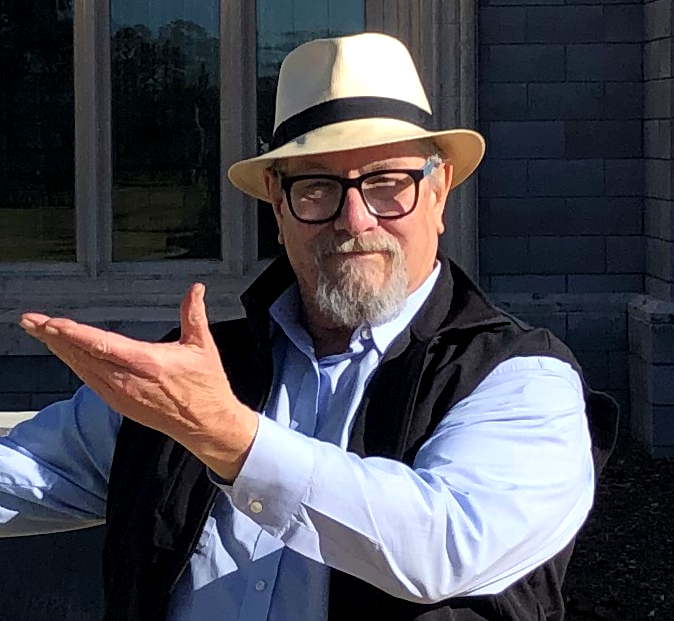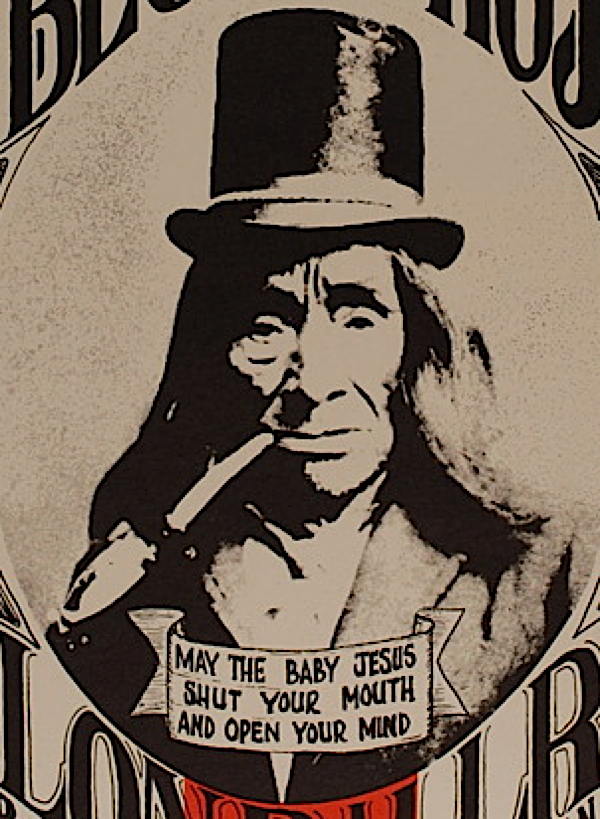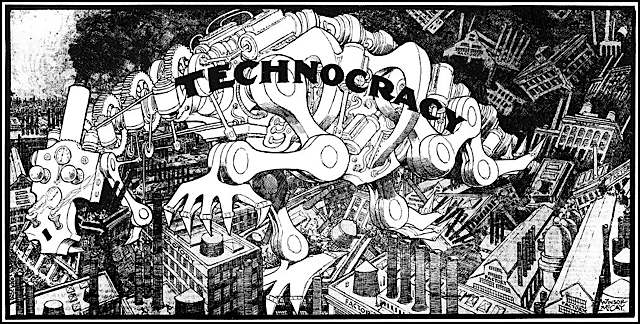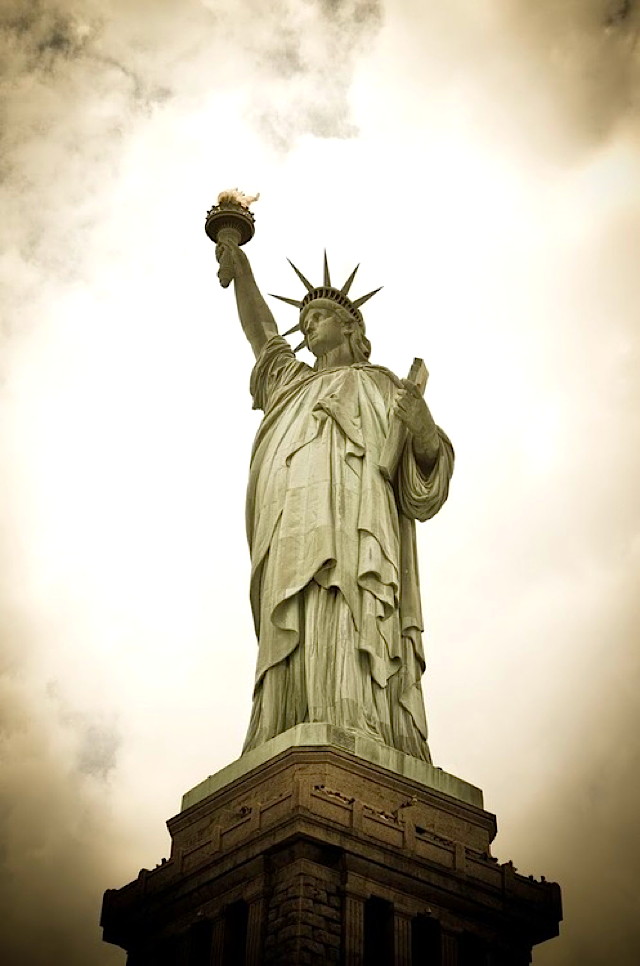
“About the Declaration there is a finality that is exceedingly restful. It is often asserted that the world has made a great deal of progress since 1776, that we have had new thoughts and new experiences which have given us a great advance over the people of that day, and that we may therefore very well discard their conclusions for something more modern. But that reasoning can not be applied to this great charter. If all men are created equal, that is final. If they are endowed with inalienable rights, that is final. If governments derive their just powers from the consent of the governed, that is final. No advance, no progress can be made beyond these propositions. If anyone wishes to deny their truth or their soundness, the only direction in which he can proceed historically is not forward, but backward toward the time when there was no equality, no rights of the individual, no rule of the people. Those who wish to proceed in that direction can not lay claim to progress. They are reactionary. Their ideas are not more modern, but more ancient, than those of the Revolutionary fathers…
“The Declaration of Independence is the product of the spiritual insight of the people. We live in an age of science and of abounding accumulation of material things. These did not create our Declaration. Our Declaration created them. The things of the spirit come first. Unless we cling to that, all our material prosperity, overwhelming though it may appear, will turn to a barren sceptre in our grasp. If we are to maintain the great heritage which has been bequeathed to us, we must be like-minded as the fathers who created it. We must not sink into a pagan materialism. We must cultivate the reverence which they had for the things that are holy. We must follow the spiritual and moral leadership which they showed. We must keep replenished, that they may glow with a more compelling flame, the altar fires before which they worshiped.” — Calvin Coolidge’s Speech on the 150th Anniversary of the Declaration of Independence


![That Was the Whopper Weekend That Was [Illustrated] welcometohell](https://americandigest.org/wp/wp-content/uploads/2021/05/welcometohell-150x150.jpg)
![Allen Ginsberg: The Interview, <strong> ➡ 1972 ⬅ </strong> [Republished by unpopular demand] ginsbergnirvana](https://americandigest.org/wp/wp-content/uploads/2022/05/ginsbergnirvana-150x150.jpg)



 Gerard Van der Leun
Gerard Van der Leun
























Comments on this entry are closed.
Amen.
I echo Venlet’s Amen
and add a hallelujah!
Lotta “ifs” in that 1st paragraph.
You know what they say, “If your aunt had balls she’d be your uncle.”
Lotta “ifs” in that 1st paragraph.
That’s true, Ghostsniper, but only for one who wishes to deny the truth or the soundness of the statements following the ifs elucidated.
The biggest “IF” is whether or not you accept the self-evident truths – if not, the whole project is humbug and we might as well give up right now. I believe in them and consequently will defend them.
Ever notice how similar democracy is to communism?
Or do you just focus on the minuscule things that are different between them?
The use of “IF” is merely a common rhetorical device known as an “anaphora.”
Comparing democracy and communism, worldwide effects, past 100 years:
Civilians deliberately killed by–
Democracies — less than 0.5 million (international wartime bombings, primaily)
Communism — more than 100 million ( peacetime + wartime)
Emigrants fleeing from, due to actual persecution
Democracies — a few hundreds ?
Communism — multimillions
Immigrants to, for a better life
Democracies — 10’s of millions
Communism — 10’s of ones
The proof of preference is left to the student of pertinent values.
Ol’ Cal was an interesting guy. He sort of unbent more as he got older, but some things were unbendable, for him. He is not well known for spending a portion of every working day cutting the budget, line by line. He was good at it. The budget was lower when he left office than when he arrived.
“The proof of preference…”
It appears, Howard, that you prefer a velvet lining on your neck chain.
If you defend death by any gov’t you defend death by every gov’t.
http://www.hawaii.edu/powerkills/NOTE1.HTM
I’ll not be one of your approved victims.
The only time that I’ve collected currency was when I was in college (1976) when the Federal Reserve re-issued the $2 bill. On the first day of issue, I bought 5 of them, a rather substantial portion of my monthly budget at the time, and stood in line at the Post Office to have a stamp and a postmark applied. I’ve still got them safely in my safe deposit box, for the day when they actually have some value.
Of course, lots of folks did the same thing that I did that day, so collectors can have their pick of first-day-of-issue $2 bills. They’re only worth maybe $4 each today. Not to mention the value lost to 40+ years of inflation. Oh, well….it wasn’t the first less-than-wise investment I’ve made, and it won’t be the last either.
If you still have a “safety” deposit box for a rainy day or anything similar,then……
gs, it’s a cotton lining on a woolen scarf — prevents becoming stiff-necked and thereby viewing things in the wrong direction.
I do defend necessary deaths by any nation defending its innocent own against murderous others. Let all citizens rein in their government representatives. Rights come with responsibilities and consequences. Vexation precedes retaliation.
Liberty is most desirable and it’s adoption and just maintenance for all has problems, old and new, to be worked on forever.
Democracy is a fine ideal and in practice is often corrupted by its government goons. And as long as the citizenry are fat, dumb, and happy things will get worse.
Who cares enough?
And to all the self-approved innocent victims, balms always.
Democracy is not fine. It is mob rule. Since FDR, perhaps since Wilson, the meaning of the term democracy has come to mean socialism. The founding form of this nation’s government was a Republic.
I thought an anaphora was an ancient jar with a pointy bottom.
Howard, that whole thing you typed (or copied and pasted) is a collection of random puzzle pieces that sounded clever to you at some point but you have no idea how they fit together or whether they fit together at all. Hint: They do not. Just a suggestion mind you, that you should spend some quality time alone with yourself thinking about this stuff, unless it really doesn’t matter. I suspect the latter. “Oh look, a squirrel!”
“When the thug shoves that blade between your ribs do you really care what his religion is?”
–gs, 2099
Howard, that whole thing you typed (or copied and pasted) is a collection of random puzzle pieces that sounded clever to you at some point but you have no idea how they fit together or whether they fit together at all. Hint: They do not. Just a suggestion mind you, that you should spend some quality time alone with yourself thinking about this stuff, unless it really doesn’t matter. I suspect the latter. “Oh look, a squirrel!”
“When the thug shoves that blade between your ribs do you really care what his religion is?”
–gs, 2099
Ol’ Silent Cal could string some thoughtful words together. “If governments derive their just powers from the consent of the governed,that is final.”
Funny how “Progressives” are utterly,perhaps willfully,blind to the extraordinary and very real progress this American nation has made,to the benefit of the entire world.
@BillH:yep,we learn something here every day…🤠
(Gerard, I’m putting my comment here, as your last few posts kind of run one into the other, touching as they do on the nature of our country, and how your pool of commenters look at it.)
Ghost,
I would agree that democracy has its flaws — it’s been described by some (for instance, Jerry Pournelle, the noted science-fiction writer) as “two wolves and a sheep voting on what to have for lunch”. I think Winston Churchill described it as “the worst possible form of government, except for all the others”. At worst, it can be something akin to mob rule, which is why the Framers put various anti-majoritarian features in the federal Constitution, some of which have been undone by Progressives over the last century or so — see, for instance, the Seventeenth Amendment.
As for your fuming about Lincoln being a tyrant, and it being a bad thing that the South lost the war, I’m not unsympathetic — I think it was Gale Norton, George W. Bush’s Secretary of the Interior, who noted that “the States lost too much after 1865”, and she was right — the tendency since then has been to regard the states as mere departments of the central government, on the French model.
BUT ….
(You knew that was coming, didn’t you? *wry smile*)
…. I think your moaning about Northern tyranny and Southern virtue puts you on a par with Faulkner’s 14-year-old boy (see Gerard’s post a page or two back) — not wrong, necessarily, but not right, either.
The science-fiction writer, Harry Turtledove, has written a long (9 or 10 volume) series imagining a world in which the South won the Civil War at Antietam — he imagines that a Confederate courier did NOT lose a message, which then did NOT fall into the hands of the Northern generals, who then did NOT have a clue what the South was up to, which in turn resulted in the Northern army having its collective backside handed to it. With the North utterly defeated at Antietam, the South was able to bring the North to the peace table and win its independence.
“Rapture!!” cries Faulkner’s 14-year-old boy.
Not so fast.
In Turtledove’s alternate universe, the South allies itself with Second Empire France, Great Britain, and Imperial Russia, while the North falls under the spell of Imperial Germany. North America becomes an unquiet place, with Civil War II being fought in the 1880s (and the North gets spanked again, driving it farther into the arms of the Kaiser). World War I, with all its horrors of trench warfare, is visited on North America. The war ends in 1917, and the North is victorious with German help over the South, forcing harsh peace terms on it, and France, Britain, and Russia are likewise treated harshly by a victorious Germany.
The 1920s and ’30s see a slide all over the world toward authoritarism, and there is no UNIFIED United States present to counteract that slide. The USA and and CSA glower at each other along a fortified, 2,500-mile long border, and the South is just itching for revenge. The North has its hands full pacifying and absorbing Canada, and the South lapses into something like Nazi Germany, only with blacks becoming the object of race-hatred instead of the Jews.
And it gets worse from there …..
Yes, Turtledove may have an ideological ax to grind — given his background, he may well favor a strong central government with 20th-Century “liberal” ideals — but the man has a point. A world without the United States as it was after 1865 (however flawed the US was afterwards) would have been a scary place — there would have been no countervailing force working against the various European empires, and Imperial Germany under Kaiser Wilhelm II was (I think) rotten at its core. It may have been more benign had Frederick III not died in 1888 after just 99 days on the throne, but Bismarck built the Imperial constitution in such a way that capture of the Imperial government by military interests was inevitable.
As an aside, Japan’s Meiji Constitution of 1890 had the same flaw — the military was NOT subject to the civilian government. The military did not answer to the prime minister, but to the Emperor, allowing it to do an “end run” around the civilian leadership. Worse, the Imperial Rescript of 1905 dictated that the Minister of the Navy and the Minister of War had to be serving officers. The civilians might offer the posts to an officer, but if the Army or Navy said “no”, the officer couldn’t serve (obviously). So, the government would collapse because a Cabinet could not be formed. This veto-power over the very formation of a government explains the slide of Japan into a de facto military dictatorship after 1930.
Imperial Germany had the same problem. World War I didn’t end in part because the German military wouldn’t let it end — they had the ear of Wilhelm II as “supreme warlord”, and he was too dysfunctional to tell the Army where to go.
But I digress …..
Ghost, is the country we now have ideal? No, of course not. Is the best we could hope for, given the facts of 1865? Probably. I’m sure you’re enough of an engineer to appreciate the saying, “The best is the enemy of the good enough”.
It seems to me that the country our great-great-grandparents gave us is “good enough”.
My two cents’ worth (sorry about the length of the comment),
Hale Adams
Pikesville, People’s still-mostly-Democratic Republic of Maryland
Thanks Hale. Good summarization. I have spoken poorly of the US gov’t probably more than most. I rarely speak favorably about it. As an engineer I tend to look for problems, hopefully before they occur, and occasionally have to deal with them after the fact. Most engineers lean toward economy on any project, I lean toward avoiding problems. Yes, I have been accused, many times, of over engineering the buildings I design. None of the over 5,000 projects I have been involved with spanning, now, more than 50 years have ever failed. That is, I have never been sued or even heard of any failings.
I am pretty much satisfied with the way the US gov’t was run up to the Civil War but I believe there is a flaw in the foundational documents that allowed things to start going astray early on. Prior to 1860 that flaw could have been addressed when everything was still sort of new and yet uncomplicated.
Because of that flaw all sorts of other things have been stacked to the ceiling on top of it so that the US Constitution as it is today is but a shadow of it’s original intent. The Kansas cows have wandered all the way to Oregon and many have drowned in the Pacific. At this point I don’t believe the flaw can be corrected without a massive “reset” that will cost millions of lives, not just in the US, but worldwide. It is a case where the cure is far, far worse than the disease. But the thing is, the country cannot continue to function while this flaw exists, it will all come to an end some day and that day could be tomorrow.